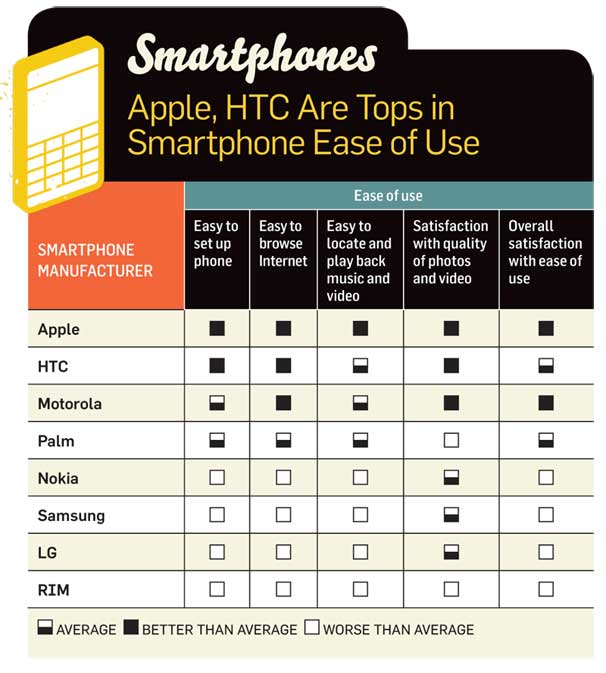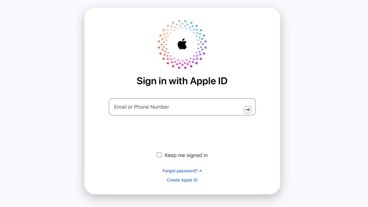PCWorld reliability survey: Apple 'smoked the competition'
Apple earned high marks almost entirely across the board for its line of Macs and iPhones. In fact, the only "average" scores earned by Apple were related to replacing failed notebook components, as well as the iPhone 4 antenna issue.
"Can Apple do no wrong?" the publication said. "Indeed, 2010 was a remarkable year for the world's highest-valued tech company."
PCWorld's reader poll found that Apple was far and away the best company, leading the publication to state that the Cupertino, Calif., company was "smoking the competition." Credited were Apple's stylish hardware, easy-to-use software, and the "warm, fuzzy feeling" given through Genius Bar support at the company's retail stores.
In the survey, just under 8 percent of Apple laptop users said they had a problem that could not be resolved by the company's technical support. That was "significantly lower" than the industry average from rivals like HP and Dell.
Apple earned the highest marks in every category for desktop PCs, notebooks and smartphones. As has been found in previous surveys, iPhone customers in the U.S. indicated they are happy with Apple's handset, but do not like the AT&T wireless service.
The iPhone also earned "average" marks in two out of four categories for smartphone reliability. In that ranking, Apple placed second to Motorola, which earned top marks in three out of four reliability categories.
But in terms of ease of use, the iPhone was the clear winner, earning perfect "better than average" scores across the board. Users said the iPhone was easy to set up, allowed for simple Web browsing, and satisfied customers with media playback.
AT&T customers, however, ranked the speed and reliability of its 3G network "worse than average," and also expressed dissatisfaction with sound quality and reliability of voice calls. That was worse than competitors Verizon, Sprint and T-Mobile, all of which earned a "better than average" ranking in at least one category.
 Katie Marsal
Katie Marsal











 Mike Wuerthele
Mike Wuerthele

 Malcolm Owen
Malcolm Owen
 Chip Loder
Chip Loder

 William Gallagher
William Gallagher
 Christine McKee
Christine McKee
 Michael Stroup
Michael Stroup







47 Comments
But in terms of ease of use, the iPhone was the clear winner, earning perfect "better than average" scores across the board. Users said the iPhone was easy to set up, allowed for simple Web browsing, and satisfied customers with media playback.
That is Apple's genius. They make products that pretty much anybody can use. My toddler can touch an icon on my iPad and watch Spongebob. On a computer, not even my teenager can figure out how to play a video!
The iPad is perfect for my family.
That is Apple's genius. They make products that pretty much anybody can use. My toddler can touch an icon on my iPad and watch Spongebob. On a computer, not even my teenager can figure out how to play a video!
The iPad is perfect for my family.
Be careful! some people here who are less secure about themselves might make fun of you for using a toddler's toy!
I agree, though. Apple is not usually at the forefront of new markets, but they wait until the timing is perfect and release a high-end, extremely polished, and yes, good-looking device that the world's largest idiot can pick up and use and the power user can dig into and have fun with too. It really is quite remarkable they've been able to do it over and over again.
Halo effect.
what's ironic is that dell and HP do this to themselves with all the crap ware they preload and keep on the recovery disk. it wouldn't be a big deal if it was some trial apps, but these things are running in the background and always flashing on screen to enter your CC number to buy something
That is Apple's genius. They make products that pretty much anybody can use. My toddler can touch an icon on my iPad and watch Spongebob. On a computer, not even my teenager can figure out how to play a video!
The iPad is perfect for my family.
I agree. I have the iPad and it's so damn easy to use I'm left speechless.
Also , at my Job in the hotel I can make a spread sheet with numbers on iPad in seconds!!
No one in the tablet game has got it like that.
I'm going to be getting the camera connection kit for iPad and photo copying the entire text for electromagnetism 2 into the iPad so I can leave the book at home for next semester.
Screw the pc.
Also I'll be getting the 21.5 inch iMac in January.